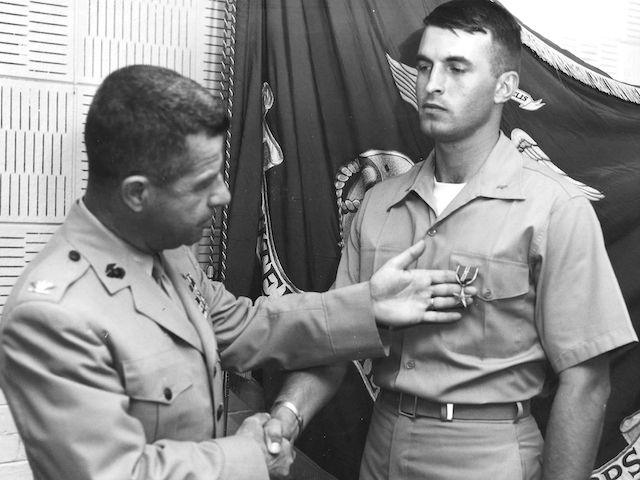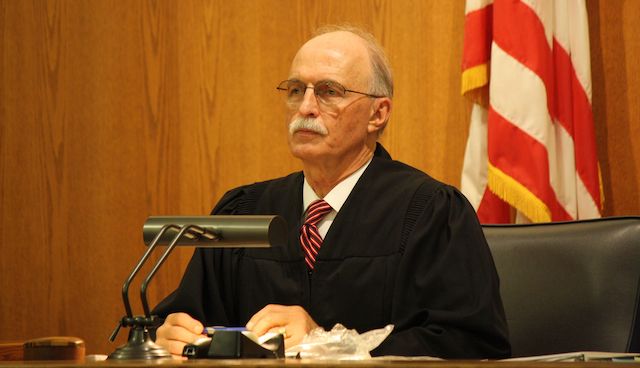Putting his philosophy of ‘Leave No Veteran Behind’ into practice…

A commanding officer presents 1st Lt. Michael Jackson with the Bronze Star Medal in 1969. ~ Courtesy Judge Jackson
Judge Michael Jackson, a combat veteran, had the power to send veterans convicted of crimes to prison. But he had a better idea about how to return them to their status of upstanding citizens.
Working as a Common Pleas Judge in Cuyahoga County, Ohio, Judge Jackson, now 80, decided it was better to customize a rehabilitation program for veterans who had offended — and surround them with other veterans.
Jackson went to Vietnam after graduating from college in 1966, serving as a U.S. Marine Corps lieutenant. He spent 13 months in-country, commanding a platoon and then a company and earning two Bronze Stars and a Purple Heart.
That gave him some credibility when he set up a Veterans Treatment Court. The most important word in the name was the middle one, he told AARP Experience Counts. “We aren’t going to send these people to prison unless they absolutely need to be there.”
Jackson said that some people would push back and say that veterans shouldn’t be given a free pass. But the program was sometimes harder than going to jail. Some didn’t want to do the work. Others went to prison first before agreeing to pursue the program.
The court divided cases into risk levels of reoffending, Jackson explained. “I felt very strongly about taking the hardest cases,” he said. “If we can make that change in someone with those kinds of issues, it’s going to be better for all of the community.” Not only would it lead to a lower crime rate but a reduction in the need for mental health services.
“If we could get them back into a stable living arrangement and personal life and having a schedule in place and a treatment program in place to deal with their addiction and mental health issues, then that person has an opportunity to be a more worthwhile person,” Jackson said.
Why did it work? Because all aspects of the process involved veterans, including an assigned mentor. The concept of veterans’ court, of which there are around 800 courts across the country, began with Judge Robert Russell, whom Jackson calls the “godfather” of these courts, when a Marine veteran came before him.
Russell had the bailiff take the Marine outside to have a talk, and then he came back in. “He noticed the veteran was standing erect, at parade rest and had straightened up, and was saying ‘Yes, sir’ to the judge. Before he wasn’t doing any of that. They worked out a plan for the vet to come back in the next week.” After seeing that change, he went to his chambers and declared “We’re going to start a veterans’ court.”
Jackson recalls one of his most trying but rewarding cases. “One veteran had 18 violations. I put this person in jail for a week, for a weekend, for another weekend, and another week, and he kept violating and violating but finally made it through the program. Then he graduated…you just don’t want to give up on him.
Some veterans would return to serve as a mentor to others. “It’s the idea of leaving no veteran behind,” Jackson said.
Though he’s now enjoying his retirement, Jackson has a final mission in mind. He wants veterans to be able to attend these programs even if their county doesn’t have one. That way, every veteran in the country who has fallen foul of the law has access to the program.
“I thought they’d earned that right because they had served,” Jackson said.

Judge Michael Jackson conducts a session of the Veterans Treatment Court. ~ Courtesy Judge Jackson
Written by Alexandra Frost for AARP ~ October 3, 2024
